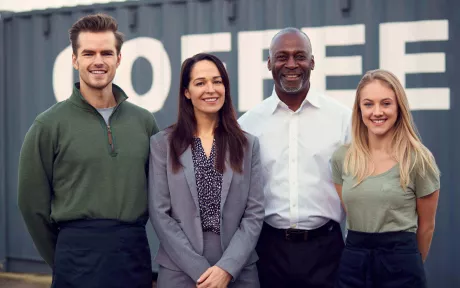
Supplier Diversity Roundtable
I had the pleasure of chairing a supplier diversity roundtable of senior procurement professionals a few days ago, an event sponsored by Scanmarket, with representation from a diverse set of sectors. As ever the approach, sponsorship, and engagement around the topic of supplier diversity varied widely by organization and not necessarily by sector. Further, it struck me that senior sponsorship was a significant factor in enabling traction and activity in this area as much as anything else. From this session I have set out some of the key challenges as well as the consensus for action.
Key Challenges
- We need champions across the entirety of the business as we can’t do this alone (in Procurement)
- Effective and proactive sponsorship and in turn governance
- Support and effective engagement with the SME’s within a supply chain
- The US and Africa is ahead of other geographic areas because of the legislation that has existed for many years to address this challenge from a minority group perspective.
- There are pockets of best practice out there, e.g., MSDUK.
- Sharing stories and case studies is essential to ensuring that a greater and clearer awareness across the business.
- Adjusting the contracts and KPI’s to better engage the SME community in a supply chain.
- Supplier Diversity may well and need to look different in different geographic areas!
- SD through the use of local SME’s and others could provide additive benefit to Carbon reduction and sustainability efforts/programs.
- Additive benefits of SD to improve brand reputation through effective engagement.
Consensus Action Points
- Agility and flexibility, long with cycle times for innovation are key enabler as a “one size fits all” approach will not be effective, so tailor the solution.
- Ongoing SD programs will need the support of actionable insights through a digital platform
- The activity in SD continues to extend and specialize the skill sets needed in a modern procurement function.
- Data is not static and will need to be refreshed to ensure the approach, actions, benchmarks and metrics are relevant.
- The regulatory landscape is increasing and so organizational needs to align with this shift.
- Drive visibility in supply chains beyond tier 1 with associated data and insights to inform the approach on an ongoing basis.
- Ensure there is clarity as to what exactly SD means in the context of your sector and organization.
- Gamification has been used effectively in a number of organizations.
- SD needs to be part of the evaluation criteria and may be developed through Tier 1 suppliers rather than directly.
- Capability may well be needed when commencing an SD program initially.



